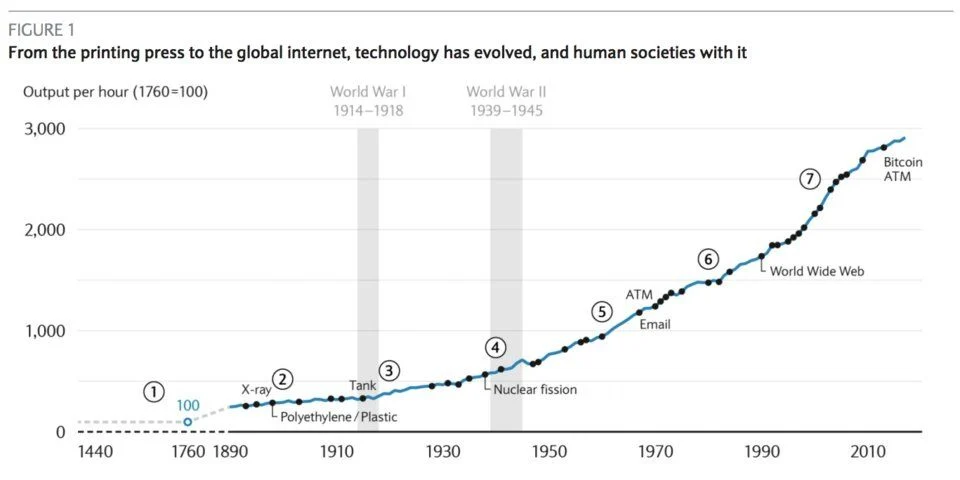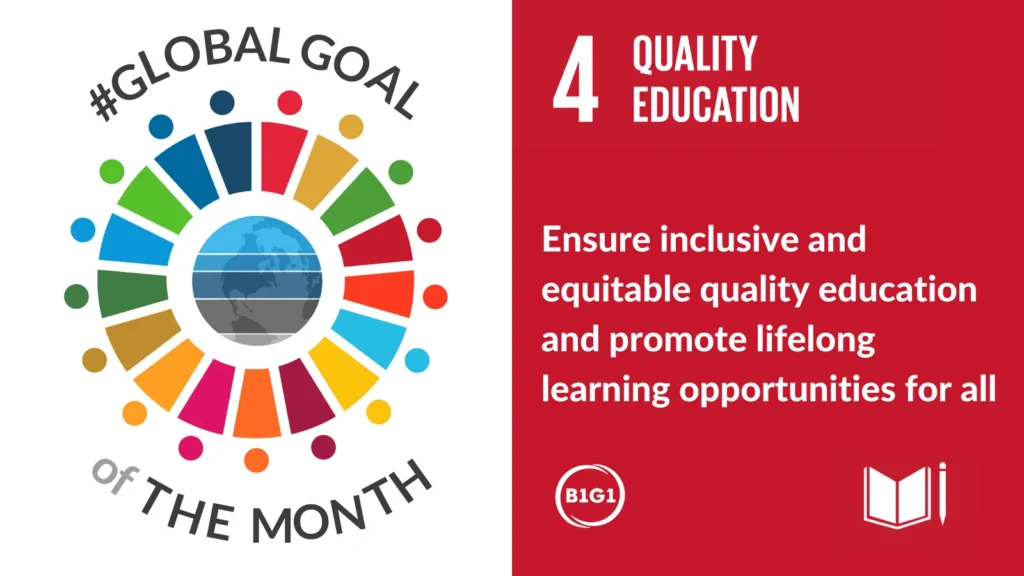Technological advancements have had a profound impact on the global landscape in recent years. The rapid development of artificial intelligence, big data, and automation has revolutionized industries and transformed the way we live and work. As we look to the future, the question on everyone’s mind is: What’s next for technological advancements and their global impact? The potential implications of emerging technologies on the economy, society, and the environment are vast and complex, making it essential to closely monitor and analyze their trajectory.
As we contemplate the future of technological advancements and their global impact, it’s crucial to consider the potential ramifications of disruptive innovations such as blockchain, quantum computing, and biotechnology. These cutting-edge technologies have the capacity to reshape entire industries, redefine the nature of work, and address pressing global challenges. Understanding the implications of these advancements is vital for policymakers, businesses, and individuals as they navigate the rapidly evolving digital landscape.
1. Artificial Intelligence and Machine Learning
Artificial Intelligence (AI) and Machine Learning have already made a significant global impact in various industries, including healthcare, finance, and manufacturing. AI enables machines to perform tasks that typically require human intelligence, such as visual perception, speech recognition, decision-making, and language translation. Machine Learning, a subset of AI, allows machines to learn from data and improve their performance over time without being explicitly programmed. These technologies have the potential to revolutionize the way businesses operate, improve efficiency, and enhance customer experiences. As AI and Machine Learning continue to advance, we can expect to see further integration into everyday life, from personalized healthcare treatments to autonomous vehicles.
Furthermore, the global impact of AI and Machine Learning extends beyond business and consumer applications. These technologies have the potential to address complex global challenges, such as climate change, poverty, and healthcare access. For example, AI-powered predictive analytics can help identify and mitigate the impact of natural disasters, while Machine Learning algorithms can optimize resource allocation in developing regions. As these technologies continue to evolve, it is crucial to consider the ethical implications and ensure that they are developed and deployed responsibly to maximize their positive impact on a global scale.
2. Quantum Computing
Quantum computing represents a significant technological advancement with the potential to revolutionize computational power and problem-solving capabilities. Unlike classical computers that use bits to process information, quantum computers use quantum bits, or qubits, which can exist in multiple states simultaneously. This allows quantum computers to perform complex calculations at a much faster rate than traditional computers, making them well-suited for solving complex problems in areas such as cryptography, drug discovery, and materials science. As quantum computing continues to advance, we can expect to see breakthroughs in fields that have traditionally been limited by computational constraints.
On a global scale, quantum computing has the potential to drive innovation and accelerate scientific discoveries. For example, quantum computers could help researchers simulate and understand complex biological systems, leading to advancements in personalized medicine and drug development. Additionally, quantum computing has the potential to revolutionize cybersecurity by enabling the development of quantum-resistant encryption methods. As the global demand for advanced computational capabilities continues to grow, the development of practical quantum computers could have far-reaching implications for various industries and scientific disciplines.
3. Internet of Things (IoT)
The Internet of Things (IoT) refers to the network of interconnected devices and objects that can communicate and exchange data with each other. This technology has already had a significant global impact, enabling smart homes, connected healthcare devices, and industrial automation. As IoT devices become more prevalent, we can expect to see further integration into various aspects of daily life, from transportation and urban planning to agriculture and environmental monitoring. IoT has the potential to improve efficiency, reduce resource consumption, and enhance overall quality of life.
From a global perspective, IoT has the potential to address pressing challenges, such as urbanization, resource management, and public health. For example, smart city initiatives leverage IoT technology to optimize energy usage, reduce traffic congestion, and improve public safety. In the agricultural sector, IoT devices can monitor soil conditions, crop health, and weather patterns, leading to more sustainable and productive farming practices. As IoT continues to evolve and become more interconnected, it is essential to address security and privacy concerns to ensure the responsible and ethical deployment of these technologies on a global scale.
4. 5G Technology
The deployment of 5G technology represents a significant advancement in wireless communication, offering higher data transfer speeds, lower latency, and increased network capacity. This technology has the potential to revolutionize various industries, including telecommunications, healthcare, entertainment, and transportation. As 5G networks continue to expand globally, we can expect to see the development of innovative applications and services that leverage the high-speed, low-latency connectivity offered by 5G technology.
From a global perspective, 5G technology has the potential to bridge the digital divide by providing high-speed internet access to underserved communities, enabling greater connectivity and access to educational and economic opportunities. Additionally, 5G networks can support the proliferation of IoT devices and enable the development of smart infrastructure and services, such as autonomous vehicles and remote healthcare monitoring. As 5G technology becomes more widespread, it is crucial to address infrastructure challenges and ensure equitable access to the benefits of high-speed connectivity on a global scale.
5. Biotechnology and Genetic Engineering
Biotechnology and genetic engineering have the potential to revolutionize healthcare, agriculture, and environmental sustainability on a global scale. Advances in gene editing technologies, such as CRISPR, have opened up new possibilities for treating genetic diseases, developing drought-resistant crops, and mitigating the impact of climate change. Additionally, biotechnology has the potential to drive innovation in personalized medicine, drug development, and bio-based manufacturing.
From a global perspective, biotechnology and genetic engineering have the potential to address pressing challenges, such as food security, access to healthcare, and environmental conservation. For example, genetically modified crops can help increase agricultural productivity and reduce the use of harmful pesticides, leading to more sustainable farming practices. In healthcare, gene editing technologies offer the potential to develop targeted therapies for a wide range of diseases, improving patient outcomes and reducing healthcare disparities. As biotechnology continues to advance, it is essential to consider ethical and regulatory frameworks to ensure that these technologies are deployed responsibly and equitably on a global scale.
6. Renewable Energy Technologies
The development and adoption of renewable energy technologies, such as solar, wind, and hydroelectric power, have the potential to transform the global energy landscape and address the challenges of climate change and energy security. As these technologies become more cost-effective and efficient, we can expect to see a shift away from fossil fuels towards clean and sustainable energy sources. This transition has the potential to reduce carbon emissions, create new economic opportunities, and improve energy access in underserved communities.
From a global perspective, renewable energy technologies have the potential to address pressing environmental and social challenges, such as air pollution, energy poverty, and climate-related disasters. By harnessing the power of renewable energy sources, countries can reduce their dependence on imported fossil fuels, improve energy security, and create a more sustainable future for generations to come. Additionally, the widespread adoption of renewable energy technologies can drive economic growth and job creation in industries such as manufacturing, construction, and research and development. As the global demand for clean energy continues to grow, it is essential to invest in infrastructure and policy initiatives that support the widespread deployment of renewable energy technologies.
7. Robotics and Automation
The advancement of robotics and automation technologies has the potential to revolutionize various industries, including manufacturing, healthcare, and transportation. Robotics and automation can improve efficiency, reduce labor costs, and enhance workplace safety. As these technologies continue to advance, we can expect to see further integration into industries that have traditionally relied on manual labor, leading to increased productivity and innovation.
From a global perspective, robotics and automation have the potential to address pressing challenges, such as aging populations, labor shortages, and hazardous working conditions. For example, robotic-assisted surgeries and healthcare automation can improve patient outcomes and reduce healthcare disparities. In the manufacturing sector, robotics and automation can enable the reshoring of production facilities and the creation of new job opportunities in high-tech fields. As these technologies continue to evolve, it is essential to consider the ethical and social implications of widespread automation and ensure that the benefits are equitably distributed on a global scale.
8. Space Exploration and Colonization
The advancement of space exploration and colonization technologies has the potential to open up new frontiers for scientific discovery, resource exploration, and human settlement. As space agencies and private companies continue to invest in space exploration, we can expect to see advancements in propulsion systems, life support technologies, and sustainable habitat designs. These advancements could pave the way for long-term human presence beyond Earth, leading to new economic opportunities and the expansion of scientific knowledge.
From a global perspective, space exploration and colonization have the potential to address pressing challenges, such as resource scarcity, environmental sustainability, and the long-term survival of the human species. For example, asteroid mining and lunar resource utilization could provide access to valuable materials and reduce the environmental impact of resource extraction on Earth. Additionally, the establishment of sustainable space habitats could serve as a backup for humanity in the event of global catastrophes. As space exploration and colonization technologies continue to advance, it is essential to consider the ethical, legal, and environmental implications of human activities beyond Earth and ensure that they are conducted responsibly and collaboratively on a global scale.
9. Augmented and Virtual Reality
Augmented Reality (AR) and Virtual Reality (VR) technologies have the potential to transform the way we interact with digital information and experiences. AR overlays digital content onto the real world, enhancing our perception of the environment, while VR immerses users in a computer-generated simulation of an alternate reality. These technologies have already made a significant impact in gaming, entertainment, and education, and as they continue to advance, we can expect to see further integration into various industries, such as healthcare, architecture, and retail.
From a global perspective, AR and VR have the potential to address challenges related to remote collaboration, training, and education. For example, these technologies can enable virtual training simulations for high-risk professions, such as healthcare and emergency response, reducing the need
| Advancement | Impact |
|---|---|
| Artificial Intelligence | Improved efficiency, automation of tasks, and potential job displacement |
| Blockchain | Secure and transparent transactions, potential for transforming industries |
| Virtual Reality | Enhanced experiences in gaming, education, and training |
| Internet of Things (IoT) | Connected devices for smart homes, cities, and industries |
| Biotechnology | Advancements in medicine, agriculture, and environmental sustainability |
conclusıon
Technological advancements such as artificial intelligence, blockchain, virtual reality, Internet of Things (IoT), and biotechnology are shaping the future of our global society. These innovations have the potential to improve efficiency, transform industries, enhance experiences, and address complex challenges. As we look ahead, the next wave of technological advancements is expected to further revolutionize how we live, work, and interact with the world around us.




